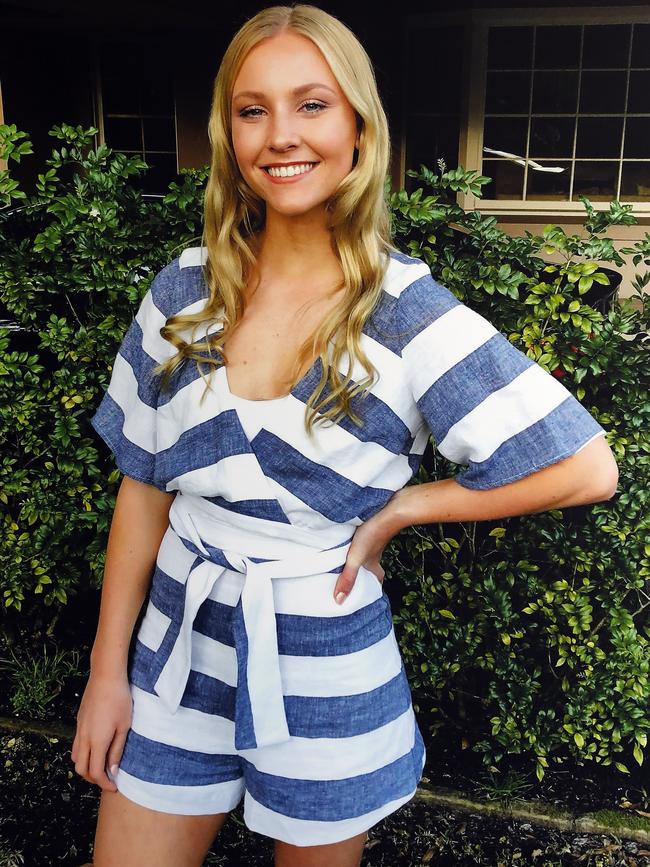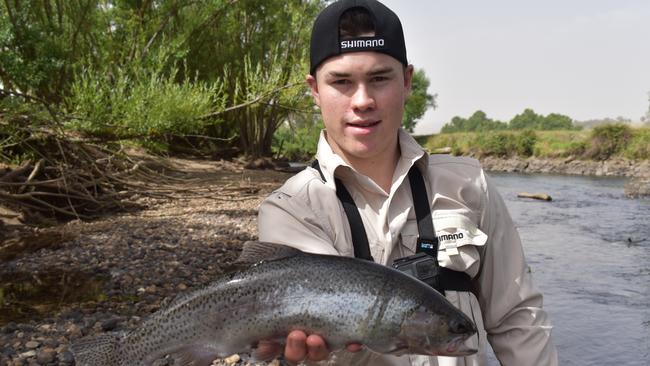Plea to Premier: Help stop youth suicides with more counsellors
Families who have lost loved ones to suicide and concerned organisations have signed an open letter to Premier Gladys Berejiklian, calling for more counsellors in schools and mental health first-aid training. READ THE LETTER
NSW
Don't miss out on the headlines from NSW. Followed categories will be added to My News.
- Nine students lose lives in north shore suicide cluster
- Family heartbroken after teen Claudia Neale’s suicide
Families scarred by suicide, teachers, parents and mental health groups are all calling on Premier Gladys Berejiklian to put student welfare at the top of the political agenda.
Twenty individuals and organisations, including the NSW Teachers Federation and NSW P&C Federation, have signed an open letter to the Premier calling for an increase to the number of counsellors in schools.
They have also called on Ms Berejiklian to ensure every NSW teacher receives mental health first aid training of some kind — a policy that remains fragmented across the state.

In supporting The Sunday Telegraph’s Can We Talk campaign, the groups are hoping to halt the increasing levels of student suicide and self-harm.
The state’s youth suicide rates are at their highest level in 15 years, with 54 people under the age of 18 dying by suicide in 2016 and 2017.
Modelling by Sydney University’s Brain and Mind Centre research predicts COVID-19’s prolonged economic impact will increase the number of NSW suicides in 15-24-year-olds by 30 per cent in the next five years.
Blue Mountains parents Fiona and Matthew Neale lost their 18-year-old daughter Claudia to suicide in August.
She was in Year 12 at a private girls’ school on Sydney’s North Shore and was one of nine students to die of suicide in that region since January.
Mrs Neale said it was critical that teachers and students felt comfortable enough to ensure that “mental health is never a taboo topic”.
“It can be scary if a student approaches you about suicide, but if teachers are educated about it they will be able to deal with it better and get the student help,” she said.
“Having an open discussion allows people to feel safe and talk about those feelings rather than holding them in.”
At a statewide level, NSW Teachers Federation president Angelo Gavrielatos put the weight of 67,000 members behind the Can We Talk campaign.
“The totally inadequate school counsellor to student ratio puts children at risk,” Mr Gavrielatos said.
“Beyond the impact of COVID-19, a summer of catastrophic fires, and following years of drought in our regions, the changing nature of our society sees many of our students more vulnerable than ever.
“Early face-to-face access to a school counsellor is the key to identifying and effectively addressing issues affecting young people.”

Sydney University Brain and Mind Research Centre co-director Professor Ian Hickie and 2014 Australian of the Year and Orygen executive director Professor Pat McGorry also signed the letter, together with founding CEO of headspace Chris Tanti and Mental Health Co-ordinating Council CEO Carmel Tebbutt.
The government has been reluctant to support mental health first aid because of fears it will increase the burden on teachers.
But the letter says the training, which could be provided through Mental Health First Aid Australia, headspace, beyondblue or the plethora of other mental health organisations, was meant as a support only.
‘PUT YOUR MONEY WHERE YOUR MOUTH IS’, PM TOLD
Prime Minister Scott Morrison and Health Minister Greg Hunt are being asked to “match their rhetoric with actions” when it comes to mental health care.
Sydney University Brain and Mind Centre co-director Professor Ian Hickie is calling on the federal government to inject $3.7bn over four years into beefing up hospital and acute mental health care.
He says funding in the October 6 budget will help stave off a suicide epidemic unfolding as a result of the country’s COVID-induced recession, which has already cost countless jobs.
The money would go to services including a national after-care service for those who have attempted suicide, regional digital services and multidisciplinary teams that would better co-ordinate mental health care for young people and adults.
The funding push is supported by 25 mental health organisations including the NSW Mental Health Commission, the Australian College for Emergency Medicine and headspace.
“This is the time for Mr Hunt and Mr Morrison to match their personal commitment to mental health in this area with serious government investment where it is really needed,” Prof Hickie said.
“When Mr Morrison came to power he said youth suicide prevention was a high priority.”
Health Minister Greg Hunt has spoken publicly about his late mother Kathinka’s long battle with bipolar disorder and promised to “obsessively” work to drive down youth suicide rates.
The Brain and Mind Centre predicts COVID-19’s prolonged economic impact will increase the number of suicides in 15 to 24-year-olds by 30 per cent in the next five years.
“Waiting until next year will be too late as the number of suicides are projected to peak in late 2021,” Prof Hickie said.
“The time to act is now and they must match their rhetoric with actions.”
A spokesman for Mr Hunt said the estimated expenditure on mental health services and suicide prevention in 2020-21 was $5.7bn — the highest federal expenditure ever recorded in that area.
